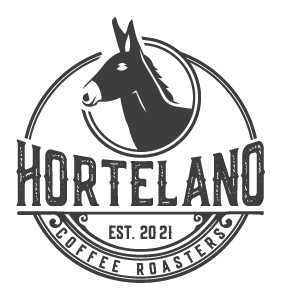
What is Specialty Coffee?
As we have already mentioned in other related articles, we cannot talk about specialty coffee without first naming the precursor of the term "specialty coffee." Erna Knutsen was the one who coined this term for the first time in the 70s of the 20th century.
Erna Knutsen began in the world of coffee working as a secretary (officially) but as an executive assistant in reality - to Bert Fulmer, who owned a company that imported coffee, tea and spices from the East.
During her time at this company, Erna realized that there were some coffee lots, called “broken lots,” that were smaller in quantity and had special flavors that large companies could not find a place for. These lots also usually had a single origin.
We are talking about a coffee industry that until then was based on large exports and the search for common flavors, rather than on differentiation and quality in coffee.
In 1973 Fulmer appointed her vice president and in 1974 Erna coined a term that has accompanied all coffee lovers ever since. In an issue of the Tea & Coffee Trade Journal magazine , Erna used the term “specialty coffee” to refer to these broken lots.
These broken lots, called special coffees by Erna, stood out for their aromatic properties. But not only for that but also for the way it is grown, harvested and processed, natural coffees with unique flavors and in small packs of a single origin .
Erna soon realized that to receive more of these lots, more relationships and good treatment with the farmers and care of the product had to be involved until the final recipient: the consumer .
But, What is specialty coffee? Is it a modern thing? either Only for coffee connoisseurs?
In my opinion, specialty coffee has been introduced in our country as a product that is difficult to understand, it seems that you need some SCA or barista course and be a bit of an alchemist to become an expert coffee maker.
Nothing could be further from the truth, coffee is part of our diet and like any other product, each of us will have our tastes and preferences.
Thus, I define specialty coffee as 100% natural and fresh coffee, whose beans I know their origin and flavor potential, which, through artisanal roasting, I modify its composition to extract the potential flavors that are intrinsic in green beans, and which has previously been evaluated and classified by different organizations such as the Coffee Quality Institute and the SCA with a minimum score of 80 points.
Is it a coffee for everyone?
I would say yes, it is a cafe for everyone. By moving away from roasting, it becomes a healthier coffee and therefore less harmful to our body.
Traditionally we have greatly feared coffee and its caffeine, the coffee industry took care of this by promoting roasting as salvation, when the true function of roasting is to lower production costs and extend its life.
By covering the coffee beans with this sugar paste, their conservation is prolonged. In fact, it is believed that it was the Portuguese and Spanish sailors who started this practice to prevent the humidity of the sea from spoiling the coffee beans.
What's more, the Iberian Peninsula is one of the few places in the world where roasted coffee is still consumed.
So, I wonder if we are intolerant to coffee or the additives it contains.
Furthermore, the specialty coffee industry has always been aimed at improving and increasing the quality of the entire process, from planting, harvesting, transportation, roasting and distribution.
Therefore, when consuming specialty coffee beans we know that:
- We are consuming beans of the Arabica variety, which are less caffeinated than beans of other coffee species.
- Fresh and seasonal grains, harvested at their optimal point of development.
- Grains that have been processed naturally or washed and dried to ensure they do not root.
- Storage and transportation optimized for correct conservation.
- Modern roasting where the beans are the ones that develop their potential and no additives are used to modify their flavor.
If we look at the international specialty coffee framework, countries such as the United States, Australia,
We can describe a development of this culture qualified in stages called waves, this has implied that the population (especially in large cities) demanded better coffee and therefore that the industry had to develop these elements to satisfy the demand.
In the case of Spain, we can say that we have been pigeonholed for too long in the second wave (phase) of development. In recent years the specialty coffee industry has exploded exponentially, leaving it no longer the customer who learns, understands and demands.
I see it as an abrupt eruption in which coffee consumers have not been able to appreciate the evolution.
We will understand it better, below, with the explanation of the "Waves".
As we have said, coffee marketing has been evolving; historically, three major trends can be observed.
First Wave
The first stage or “wave” begins when coffee consumption grows exponentially, which makes many entrepreneurs and dealers see it as a source of income and an emerging market.
This phase has its beginnings at the beginning of the 19th century, in which coffee had to be cheap to be sold. The desire on the part of entrepreneurs, businessmen and dealers to take a piece of this cake led to its mass production, and the search for low-cost packaging and transportation produced a notable decrease in its qualities and quality.
During this stage, some advances were made in the treatment of coffee, such as the invention of air evacuation to preserve fresh aromas for longer. The first soluble coffees also appeared, in the continuous search to introduce coffee into every home at a low cost.
Even so, the demand for higher quality had its effect.
Second Wave
The demand for quality on the part of coffee consumers made the industry start working on it, not only seeking to increase the quality and quality of the coffee but also to satisfy the curiosity of its customers about the beans they they consume.
Thus, coffee merchants began to publish the countries of origin of their beans, as well as a search for higher quality beans. Although the market continued to focus on low-cost customer experience.
One of the greatest exponents of this wave is the well-known Starbucks brand.
At this time the industry continued to focus on mixing flavors with coffee, which was generally consumed quite roasted and black.
Third Wave
Subsequently, the force created by coffee lovers and their interest in coffee itself caused an aromatic revolution where coffee is investigated from its cultivation to filtering methods, through its processing, packaging and types of roasting in order to squeeze to the maximum its qualities.
During this time, the growth of artisan roasters stands out, mostly small and independent dedicated to studying the processes to maintain and increase the quality of coffee.
In this era in which we find ourselves, coffee beans are treated with care, roasters are eager to show off their raw materials and the first competitions arise.
Transparency prevails here since the customer is offered all the information necessary to evaluate the coffee they are drinking; origin, process, roasting and date and recommended filtering methods. All this to offer a complete experience.
Is there a fourth wave? It has not yet been defined, but progress is already being observed in the treatment and trade of beans with the help of “Fairtrade” and investment in R&D that predict new paths in the world of specialty coffee.
Now that we have seen how the coffee industry has developed abroad we can understand a little better what we have been missing. And we are wanting to move from one stage to another implementing techniques and procedures promoted and provided by the Specialty Coffee Association without understanding the development of coffee itself.
This makes specialty coffee a mystery for many and for others, a world of sybarites or geeks that does not suit them. Leaving the obvious benefits of switching to 100% natural, artisanal and fresh coffee.
